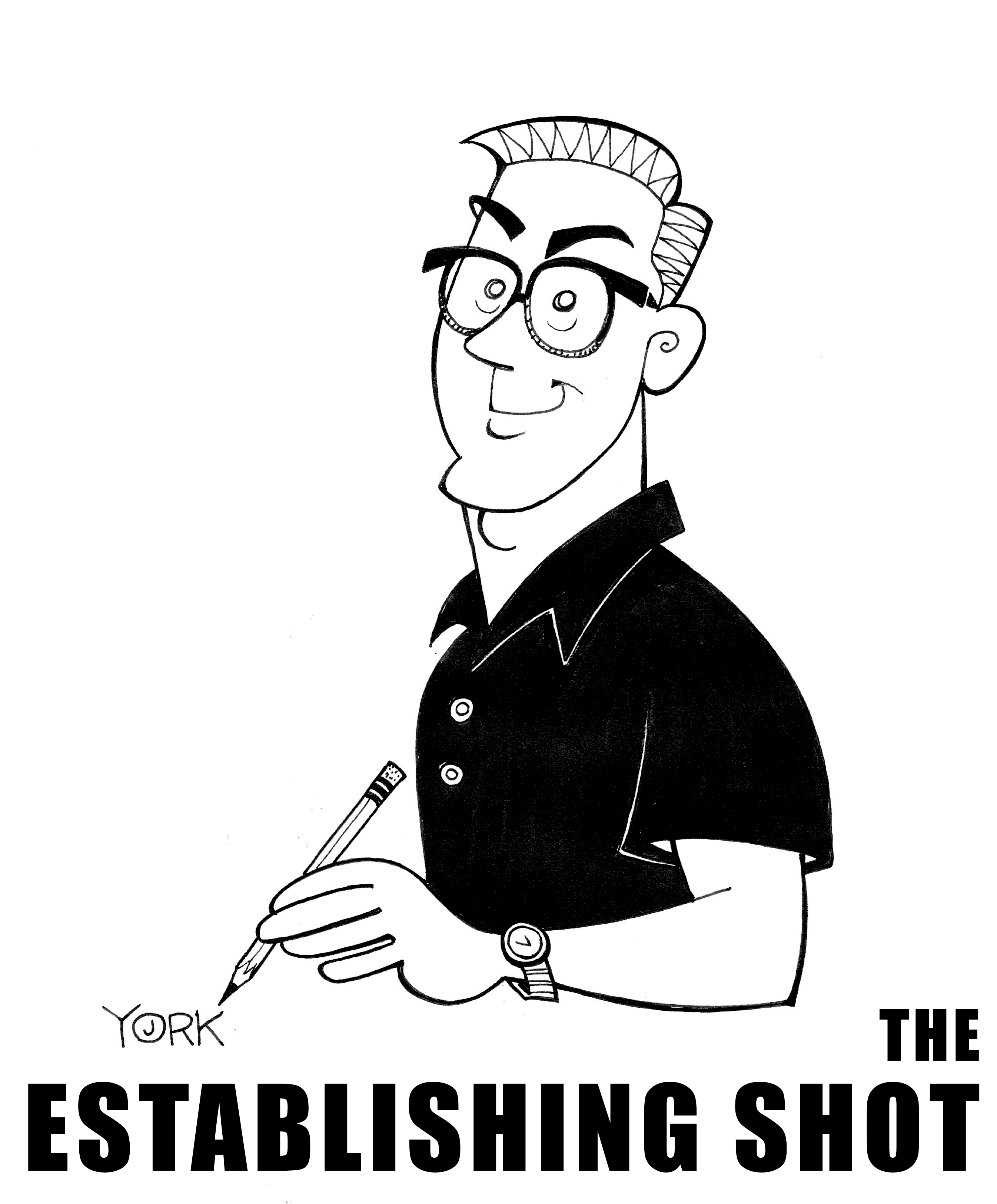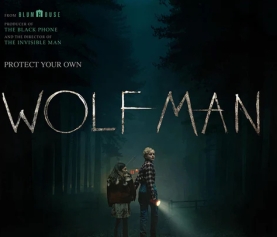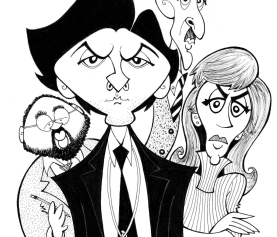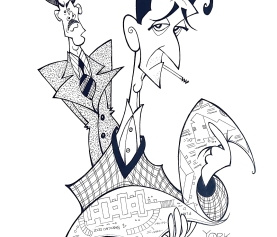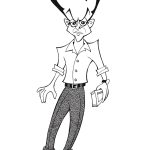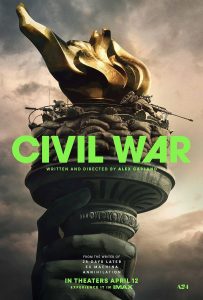
With his latest movie CIVIL WAR, filmmaker Alex Garland (EX MACHINA, MEN) has made a political thriller that is sure to be one of the year’s most talked about films. It has a lot to say about our nation’s divided electorate, aspirations of autocracy, and a press breathlessly covering every second of it while often missing the bigger picture. Garland might even be foreshadowing what is yet to come in the USA, a nation imploding in on itself, but what he has done is create a drama that feels immediate, ugly, and devastating. There’s a TWILIGHT ZONE aspect to it all, along with strong notes of BLACK MIRROR sprinkled in too. It makes for a provocative, tense ‘what if’ tale that should work as a clarion wake-up call for those in this nation with their heads in the proverbial sand.
If only, it was more specific and not so vague.
As well done as it is: faithfully acted, elaborately staged, and appropriately violent, there is a coyness to Garland’s screenplay, an unwillingness to assign blame that feels almost like a cheat. Garland fails to fill in big blanks like what led to this story’s civil war, with the filmmaker fudging almost every important answer along the way. It’s still a film worth seeing, but as a narrative, it’s ladled with too much weak sauce.
How so? The president (Nick Offerman) is presented as a cool and collected, business sort, but he’s in the middle of a third term that has made America go haywire. Why? It’s never explained. The two states leading the secession from the union are Texas and California. How did two such different states find common ground and what set them off? It’s never explained. The military seems to have turned treasonously against the federal government with an endless supply of soldiers, weapons, tanks, and choppers on their side. How did that happen? Again, it’s never explained.
Even more confounding narratively is a press that rushes about through all of the battles, clearly getting in the way of it all, yet the film keeps telling us that the internet isn’t working and stories aren’t being filed. So, who’s paying attention? Is there even cable news, print journalism, or any news online to speak of? Again, it’s all very vague if not utterly contradictory.
Nonetheless, we’re asked to identify with four reporters covering the story as those are the only real characters developed throughout the 109-minute run time. Lee (Kirsten Dunst) is a dour, war photojournalist wholly depressed by this one. Her partner is Joel (Wagner Moura), a wily reporter who escapes the awfulness with frequent hits of booze and grass. Sammy (Stephen McKinley Henderson) is an aging reporter from the New York Times who’s still trying to matter in a young person’s game. And Jessie (Cailee Spaeny) is that young person who’s both naïve and ballsy as she tries to carve a place for herself on the front line.
Soon enough, this mixed foursome hits the road in a press car, headed to DC to cover the coming coup. Their road trip combines some character comedy from films like THE HOLDOVERS and THE SURE THING with a mix of politically dystopian tales like CHILDREN OF MEN, THE PARALLEX VIEW, and even bits of APOCALYPSE NOW. There’s a similarity in the stops they make to those of Martin Sheen’s boat in Francis Ford Coppola’s classic take on Vietnam. You just know nothing good is going to come from deviations along their journey.
Indeed, such scenes here make for brutal set pieces that will keep turning over in your mind for days. They are in mine. Such moments are brilliantly done and show Garland off as a vividly expert filmmaker. There is one scene with Jesse Plemons playing a militant who has stopped the press car for questioning, and the scene is as terrifying and riveting as any such scene since Javier Bardem’s Anton Chigurh taunted that gas station proprietor in NO COUNTRY FOR OLD MEN. The Plemons character calmly points his assault weapon at each reporter while asking them what kind of American they are, and it’s so utterly palpable you might not be able to breathe. But when you finally catch your breath, you might want to ask, “Now, whose side was that creep supposed to be on?”
All in all, CIVIL WAR is riveting, and expertly produced, employing a hand-held visual style that makes everything feel all the more immediate. If only, it didn’t keep coming up short on the details in the script. Where is Europe in all of this? Or, for that matter, Russia, China, or the United Nations? Why is the nation so barren and everything so wrecked if it’s only been 15 months? And what are state governments doing? Sometimes this is a great film, while other times it feels like a first draft.
I’m glad that Garland made a contemporary political thriller about today, but it seems at times like he wants to eat his cake and have it too. CIVIL WAR is often brilliant, but every time it’s smart and daring, it turns around and is equally coy and confounding too. Perhaps as a Brit, Garland feels that he can distance himself from such specifics because he lives across the pond, but for those of us amid this pending nightmare in America, the pain feels far too palpable for any artist of his stature to pull such punches.
